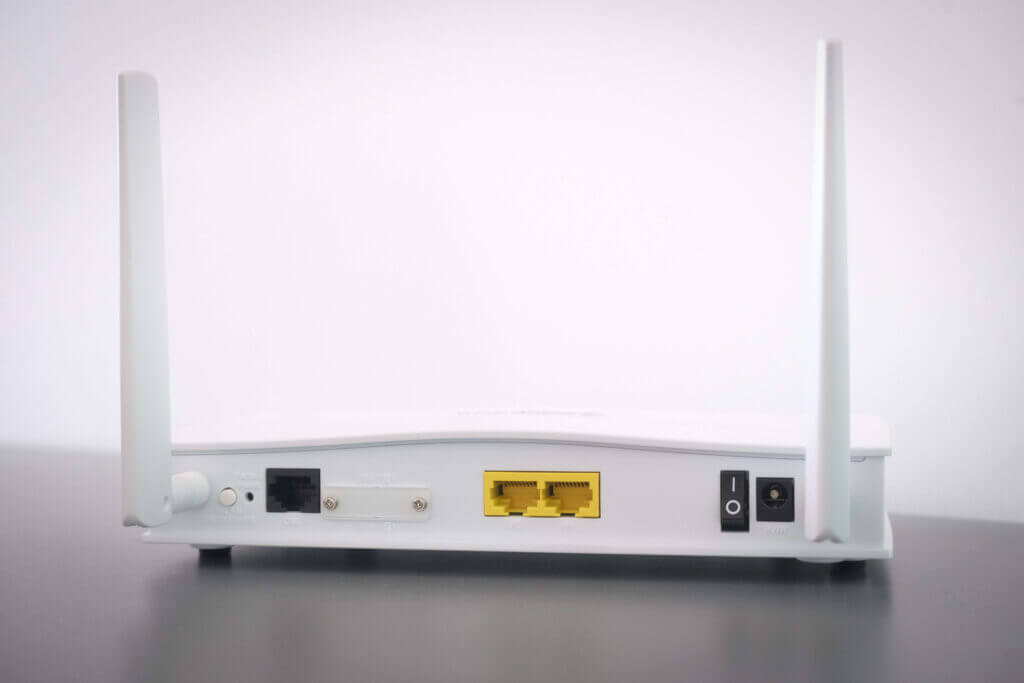Wireless modem SAR testing is a crucial part of manufacturing these products. However, SAR testing is a complicated process and it may be difficult for you to keep up with constantly changing guidelines. In this article, we’ll discuss how wireless modems use RF energy, how SAR regulations are applied to wireless modems, and how testing is conducted.
Wireless Modems & RF Energy
While standard modems connect devices like computers to the Internet using cables, wireless modems don’t need cables. They connect to wireless networks directly, which allows them to directly access internet connectivity. Modems are commonly built into smartphones, mobile phones, and PDAs, or are produced as USB, serial, or wireless firewall modems. They can range from the size of a cable modem to the size of a credit card.
This wireless connection to networks and devices is what makes wireless modem SAR testing a necessity. In order to connect to these devices wirelessly, wireless modems need to use RF energy. Because modems are used in homes and public spaces, our bodies come in contact with and absorb this RF energy. In order to make sure the amount of RF energy being absorbed by our bodies is safe according to the FCC’s guidelines, products must undergo and pass SAR testing.
Wireless Modems & SAR Regulations
SAR measurement, or SAR testing, is one of the most important components of RF exposure evaluation. SAR is a measurement of the heating value of radiated RF energy on human tissue. It evaluates the safety of low-power RF energy transmitters when they’re in close proximity to the human body.
SAR testing processes require special equipment that isn’t widely available. Because of this, SAR testing increases expenses and can delay the manufacturing process of products like wireless modems. SAR regulations can also be confusing and it can be difficult to keep up with updates to these regulations. This is why it’s so important that you begin working with a reputable compliance lab as early as possible in the production process.
In addition to the intricacy of SAR regulations and testing itself, every product is unique and must be evaluated uniquely. Requirements for wireless modem SAR testing are affected by the modem’s output power, antenna gain, duty cycle, and distance from the human body during use. This is why it’s beneficial to work with a compliance lab during the design process. Understanding how each of these factors will affect SAR testing will enable you to design the modem specifically to avoid complications during testing.

How Wireless Modem SAR Testing is Conducted
USB modem SAR testing is conducted on all 5 sides of the modem with a 5mm gap between the modem face and the flat phantom used for evaluation. If there are multiple antennas and technologies in the modem, each antenna and technology must be tested to ensure they meet SAR requirements.
All PCMCIA/express cards are tested on the bottom surface with a 10mm gap from the phantom for US SAR requirements. The only exception to this is if the PCMCIA/express card is installed into a PDA. In this case, the device must be tested with a 5mm gap from the phantom.
The EU requires that all sides of a modem are tested at a distance that does not exceed 25mm.
Wireless Modem SAR Testing: RF Exposure Lab is Here to Help!
If your business manufactures these devices, understanding wireless modem SAR testing is crucial for the success of your company. Ignoring these regulations simply isn’t an option and could lead to serious consequences. Working with an experienced SAR testing lab from the very beginning will help you successfully get through the maze of SAR regulation and ensure that your product is compliant.
At RF Exposure Lab, we go above and beyond to make sure our clients understand what we do and assist them in understanding what SAR testing is required for their products. We’ll even guide our clients through the design phase, ensuring that their products will pass testing the first time. Through our unique expertise and commitment to our clients, we guarantee accurate testing and results.
We offer SAR testing services for a variety of wireless devices including wireless modems, laptops, tablets, cell phones, medical products, and much more. If you’re looking for SAR testing help provided with speed, accuracy, expertise, and integrity, contact us to get a quote for our services.
